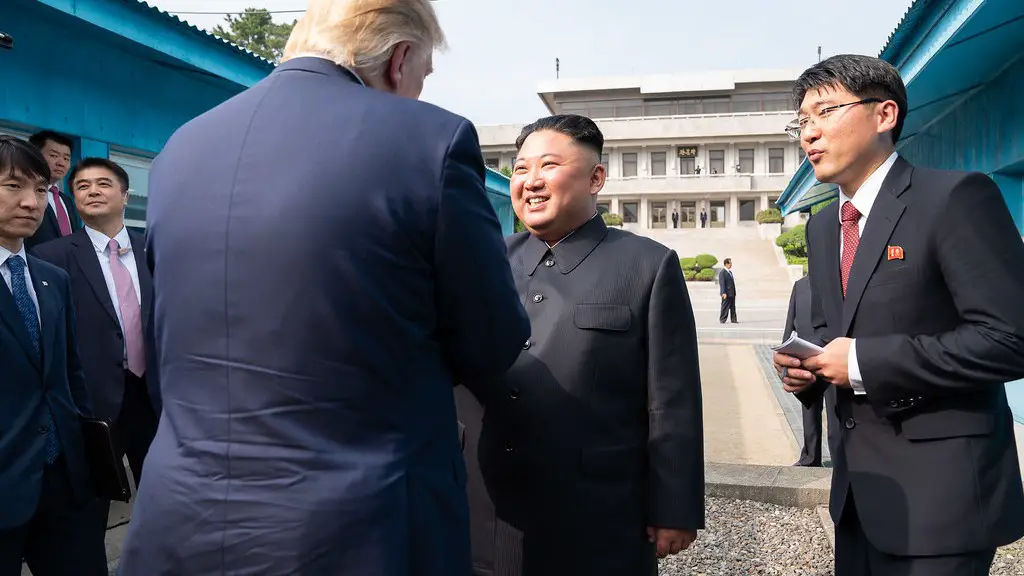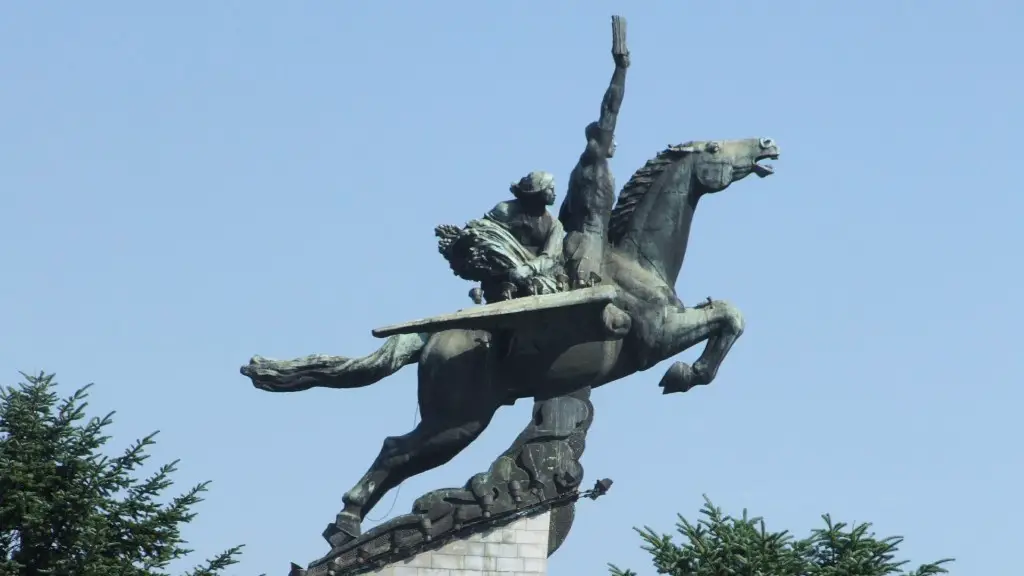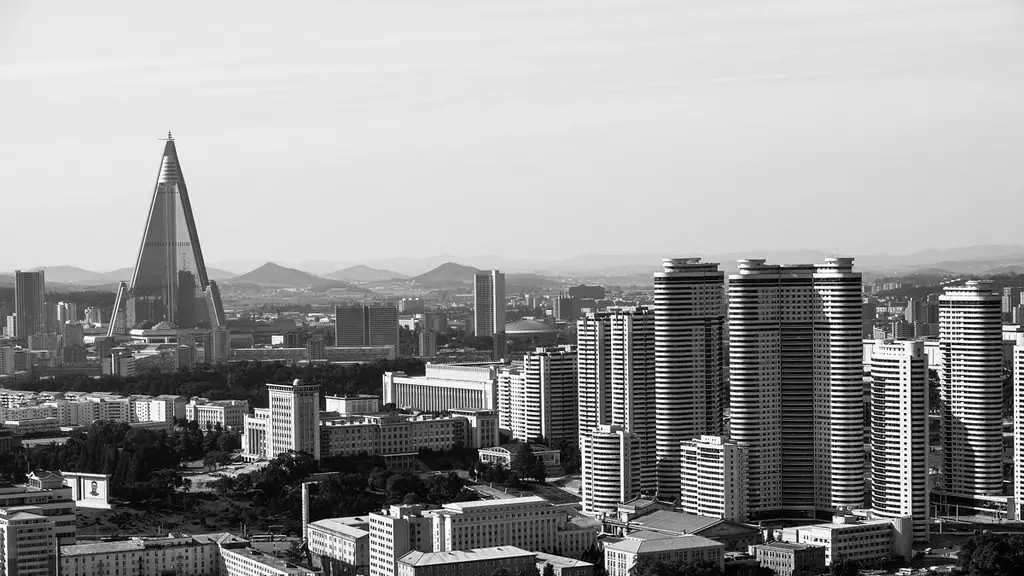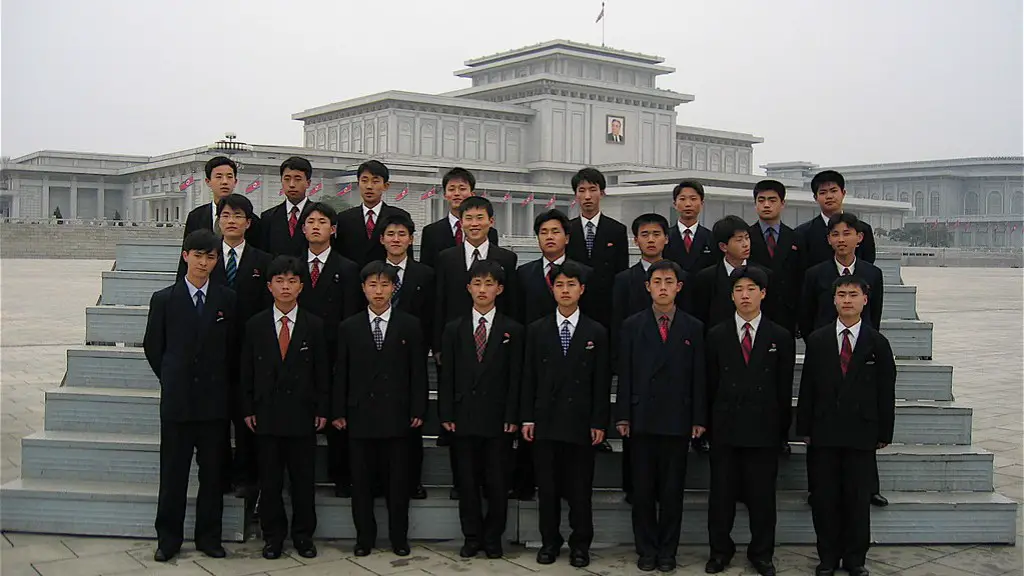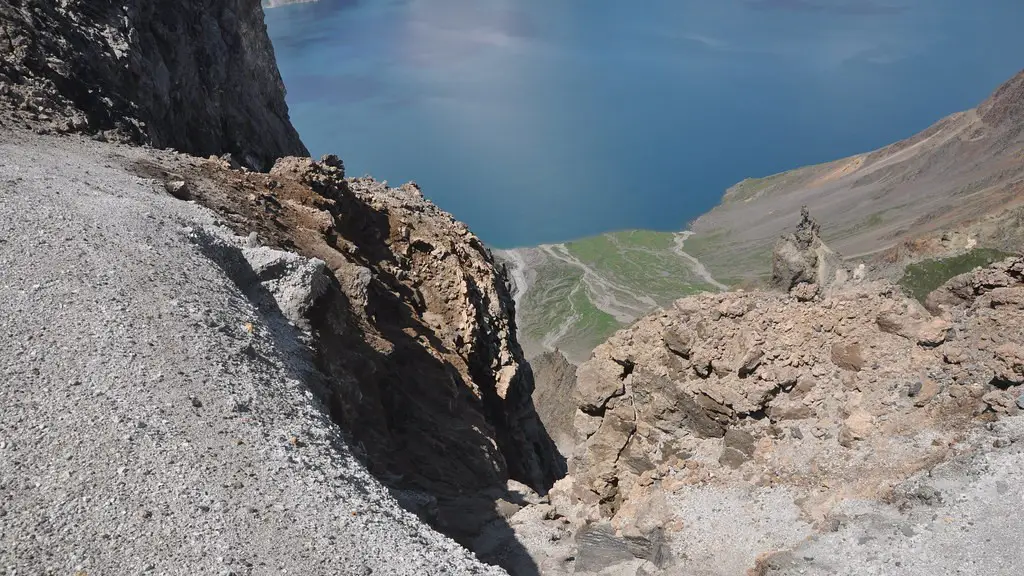The potential consequences of a North Korean missile launch are both alarming and unpredictable. If North Korea were to launch a missile, it is unclear what their intentions would be. Would they be aiming for a specific target, or would they be conducting a test? Either way, the international community would most likely respond with condemnation and sanctions.
It is also unclear how the United States would respond to a North Korean missile launch. In the past, the United States has declared that North Korea’s development of nuclear weapons is a grave security threat. President Trump has even said that he would “totally destroy” North Korea if it threatened the United States or its allies. Given this rhetoric, it is possible that the United States would take military action if North Korea launched a missile.
The situation is made even more complicated by the fact that North Korea is believed to have a small number of nuclear weapons. This means that a North Korean missile launch could potentially be a nuclear strike. The United States has vowed to protect its allies from a nuclear attack, so if North Korea launched a nuclear missile, it is possible that the United States would launch a counter-attack.
The consequences of a North Korean missile launch are unknown, but they could be catastrophic.
If North Korea launches a missile, it is not clear what would happen. The United States has said that it would take appropriate action if North Korea launches a missile.
Can North Korea hit the US with a missile?
The Hwasong-14 ballistic missile is a North Korean missile that can travel up to 8,000km. It is capable of reaching the US island of Guam in the Pacific and potentially New York.
Nuclear weapons are extremely destructive and have the potential to kill millions of people. The bombings of Hiroshima and Nagasaki are prime examples of the devastation that can be caused by a single nuclear weapon. Several nuclear explosions over modern cities would kill tens of millions of people.
Can the United States stop a nuclear missile
The United States needs to increase its inventory of interceptors to shoot down more incoming ballistic missiles. At present, the United States can shoot down only a handful of ballistic missiles because its inventory of interceptors is limited. By increasing its inventory, the United States will be able to shoot down more missiles, increasing the probability of an intercept.
North Korea has a long history of launching missiles, dating back to the 1980s. There are three primary reasons for these launches: to test and improve its weapons technology, to send a political message to the world (primarily the US), and to impress its people at home and shore up loyalty to the regime.
The first reason is perhaps the most obvious: North Korea wants to improve its weapons technology. By testing missiles, they can gather data on range, accuracy, and other important factors. This information is then used to improve future designs.
The second reason is political. North Korea wants to send a message to the world that it is a powerful country not to be messed with. These missile launches are a way of showing off their capabilities and reminding the US (and other countries) that they are a force to be reckoned with.
The third reason is more domestic in nature. These missile launches help to shore up support for the North Korean regime at home. They impress the North Korean people and remind them that their government is strong and capable. This loyalty is important to the stability of the regime.
Overall, North Korea launches missiles for a variety of reasons. These launches serve as a way to test new technology, send a political message
Where would a nuclear bomb hit in the US?
The six most likely target cities in the US are as follows: New York, Chicago, Houston, Los Angeles, San Francisco, and Washington, DC. These countries will stay prepared to combat any type of nuclear attack shortly. The nuclear impact could destroy the city and this will lead to a disaster.
The development of anti-ballistic missile technology has been a focus of many nations for many years, but there has yet to be a system developed that is capable of intercepting and destroying an intercontinental ballistic missile. The main reason for this is the sheer speed of an ICBM; they are incredibly fast and agile, making them very difficult to hit. Even if a system was developed that could intercept an ICBM, it is unlikely that it would be able to destroy it completely, meaning that the warhead would still detonate, causing extensive damage. Therefore, it is fair to say that no nation currently has a credible capability to shoot down an incoming ICBM.
How far can you survive a nuclear missile?
The survival prospects of persons immediately downwind of the burst point would be slim unless they could be sheltered or evacuated. A person would have at most 3 hours to find shelter from the fallout. Smaller radiation doses would make people seriously ill.
Some people believe that the safest place to be during a nuclear war would be in a rural area, far from any large urban centers or nuclear power plants. Specifically, they believe that Maine, Oregon, Northern California, and Western Texas would be some of the safest locales. This is because these areas are less likely to be targeted by nuclear missiles, and they would also be less affected by the radiation from a nuclear explosion.
How far do you have to be from a nuclear bomb to survive
A new study studying the effects of nuclear blasts has found that some people up to seven miles away from the blast could survive if they are lucky enough to find the right kind of shelter. The study looked at the effects of nuclear blasts on people and found that the resulting inferno and blast wave from the explosion can instantly kill people who are directly in its path. However, people who are farther away from the blast may have a chance of survival if they can find shelter that will protect them from the heat and radiation. The study’s findings suggest that people who are in the path of a nuclear blast should try to find the closest and best shelter possible in order to improve their chances of surviving.
Many experts and former officials predict that if Washington struck back militarily at Russia for using a nuclear weapon, it would most likely be with conventional weapons, to try to avert rapid escalation to an all-out nuclear war.
What would the US do in a nuclear war?
If Russia and the United States were to get into a nuclear war, it is highly likely that other countries would get involved as well. This is because both Russia and the United States have allies around the world, and these allies would most likely come to their aid if they were being attacked. Additionally, both Russia and the United States have nuclear weapons stored in other countries, so these countries would also be targeted in a nuclear war. Ultimately, a nuclear war between Russia and the United States could have devastating consequences for the entire world.
It’s important to be careful when analyzing data and making conclusions based off of that data. Sometimes, people can inflate numbers or estimates in order to create a sense of urgency around an issue. This can be done in order to put pressure on policymakers to take action on that issue.
Why did the US want to go to war with Korea
Truman was worried that if Korea fell, the next country to fall would be Japan, which was very important for American trade. This was probably the most important reason for America’s involvement in the war.
North Korea’s long-range missile and nuclear programs represent the region’s most immediate security challenge. Any major instability or conflict on the Korean Peninsula would have severe strategic, economic and humanitarian repercussions. The international community must continue to work together to find a peaceful resolution to this crisis.
How many nukes does North Korea have?
North Korea has a military nuclear weapons program and, as of early 2020, is estimated to have an arsenal of approximately 30 to 40 nuclear weapons and sufficient production of fissile material for six to seven nuclear weapons per year. North Korea has been a nuclear state since 2006, and its nuclear capabilities have been a source of concern for the international community for many years. In recent years, North Korea has made significant progress in its nuclear program, and its nuclear arsenal is now believed to be one of the largest in the world. While North Korea has never conducted a nuclear test, it is believed to have the capability to do so, and its nuclear weapons are a serious concern for the international community.
Deinococcus radiodurans is a fascinating bacterial species that is renowned for its exceptional radiation resistance. These hardy microbes can easily withstand 1,000 times the radiation dose that would kill a human, making them a valuable tool for research into radioprotective strategies. While the precise mechanisms underlying their extraordinary resistance are still being elucidated, it is clear that size plays a key role – D. radiodurans are much smaller than humans, and this reduced size enables them to better repair damage caused by radiation.
Conclusion
The range of North Korea’s missiles means that any launch would pose a grave threat to its neighbors, in particular Japan and South Korea. If North Korea were to launch a missile, it is likely that Japan and South Korea would respond with their own military force, and the United States would also get involved. This could quickly escalate into a full-blown military conflict on the Korean Peninsula, with devastating consequences.
If North Korea launches a missile, it is likely that the U.S. would respond with a military strike. This could lead to a full-scale war on the Korean Peninsula, which would be devastating for the people of North and South Korea.
